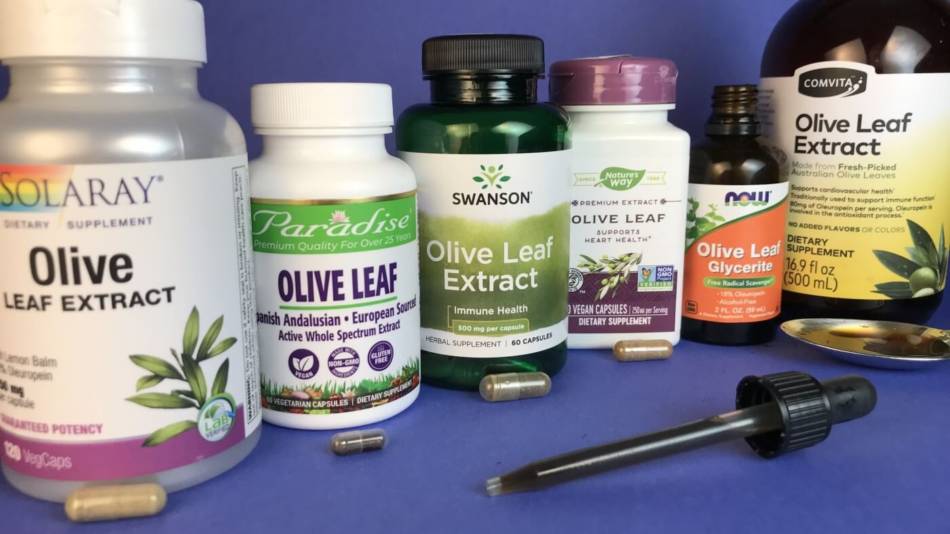Olive leaf supplements, derived from the leaves of the olive tree (Olea europaea), have gained significant attention in recent years for their potential health benefits. The olive tree, native to the Mediterranean region, has been revered for centuries for its culinary and medicinal properties. Olive leaf supplements contain bioactive compounds such as oleuropein, hydroxytyrosol, and polyphenols, which contribute to their therapeutic effects. In this comprehensive guide, we explore the multifaceted advantages of olive leaf supplements, drawing upon both historical use and contemporary scientific research.
Historical and Cultural Significance
The olive tree holds a central place in Mediterranean culture and has been cultivated for thousands of years for its fruits, oil, and leaves. In ancient times, olive leaves were used in traditional herbal medicine to treat a variety of ailments, including fevers, infections, and inflammation. Olive leaf extract was also used topically to promote wound healing and skin health. The ancient Greeks and Egyptians valued the olive tree for its symbolic significance and medicinal properties, considering it a symbol of peace, wisdom, and fertility.
Antioxidant Properties
One of the primary benefits associated with olive leaf supplements is their potent antioxidant activity. Olive leaves contain high levels of polyphenols, particularly oleuropein and hydroxytyrosol, which have strong antioxidant properties. These compounds help neutralize harmful free radicals and protect cells from oxidative damage caused by environmental stressors such as pollution, UV radiation, and toxins. By reducing oxidative stress, olive leaf supplements may help prevent chronic diseases, slow down the aging process, and promote overall health and longevity.
Cardiovascular Health
Olive leaf supplements are valued for their potential to support cardiovascular health and reduce the risk of heart disease. The polyphenols found in olive leaves have been shown to lower blood pressure, improve blood flow, and reduce inflammation in the cardiovascular system. Additionally, olive leaf extract may help lower LDL (bad) cholesterol levels while increasing HDL (good) cholesterol levels, promoting a healthy lipid profile. By supporting vascular health and lipid metabolism, olive leaf supplements may help reduce the risk of atherosclerosis, heart attack, and stroke.
Immune System Support
Olive leaf supplements may help strengthen the immune system and enhance immune response to infections and pathogens. The bioactive compounds in olive leaves have antimicrobial, antiviral, and antifungal properties, which help inhibit the growth and replication of harmful microorganisms. Olive leaf extract has been shown to be effective against a wide range of bacteria, viruses, and fungi, including influenza, herpes, and candida. By boosting immune function and fighting off infections, olive leaf supplements may help reduce the severity and duration of illnesses and support overall immune health.
Anti-inflammatory Effects
Olive leaf supplements exhibit significant anti-inflammatory effects throughout the body. The polyphenols in olive leaves help reduce inflammation by inhibiting inflammatory pathways and cytokine production. Chronic inflammation is linked to a variety of health conditions, including arthritis, diabetes, and cardiovascular disease. By reducing inflammation, olive leaf supplements may help alleviate symptoms of inflammatory conditions, improve joint health, and support overall well-being. Additionally, olive leaf extract may help protect against oxidative stress-induced inflammation, further promoting tissue health and resilience.
Cognitive Function
Olive leaf supplements may have benefits for cognitive function and brain health. The polyphenols in olive leaves have been shown to have neuroprotective effects, helping to protect neurons from damage and degeneration. Olive leaf extract may help improve memory, cognitive performance, and mental clarity, particularly in older adults. Additionally, olive leaf supplements may help reduce the risk of neurodegenerative diseases such as Alzheimer’s and Parkinson’s disease by inhibiting the formation of amyloid plaques and tau tangles in the brain.
Usage and Dosage
Olive leaf supplements are available in various forms, including capsules, tablets, tinctures, and teas. The appropriate dosage may vary depending on factors such as the specific health concern being addressed, the concentration of active ingredients in the supplement, and individual factors such as age, weight, and overall health status. It is advisable to follow the manufacturer’s instructions or consult with a healthcare professional to determine the suitable dosage for optimal results.
Safety Considerations
Olive leaf supplements are generally considered safe for most people when used as directed. However, some individuals may experience mild side effects such as gastrointestinal upset or allergic reactions. Pregnant and breastfeeding women should consult a healthcare professional before using olive leaf supplements. Additionally, individuals with certain medical conditions or taking medications should use olive leaf supplements cautiously and under the guidance of a healthcare provider.
Conclusion
Olive leaf supplements offer a wide range of potential health benefits, from supporting cardiovascular health and immune system function to reducing inflammation and promoting cognitive function. Rooted in centuries of traditional use and supported by contemporary research, olive leaf continues to be recognized as a valuable herbal remedy with diverse therapeutic effects. However, it is essential to use olive leaf supplements judiciously and under the guidance of a healthcare professional, especially for individuals with pre-existing medical conditions or those taking medications. With careful use, olive leaf supplements may serve as a valuable addition to a holistic approach to health and well-being.

